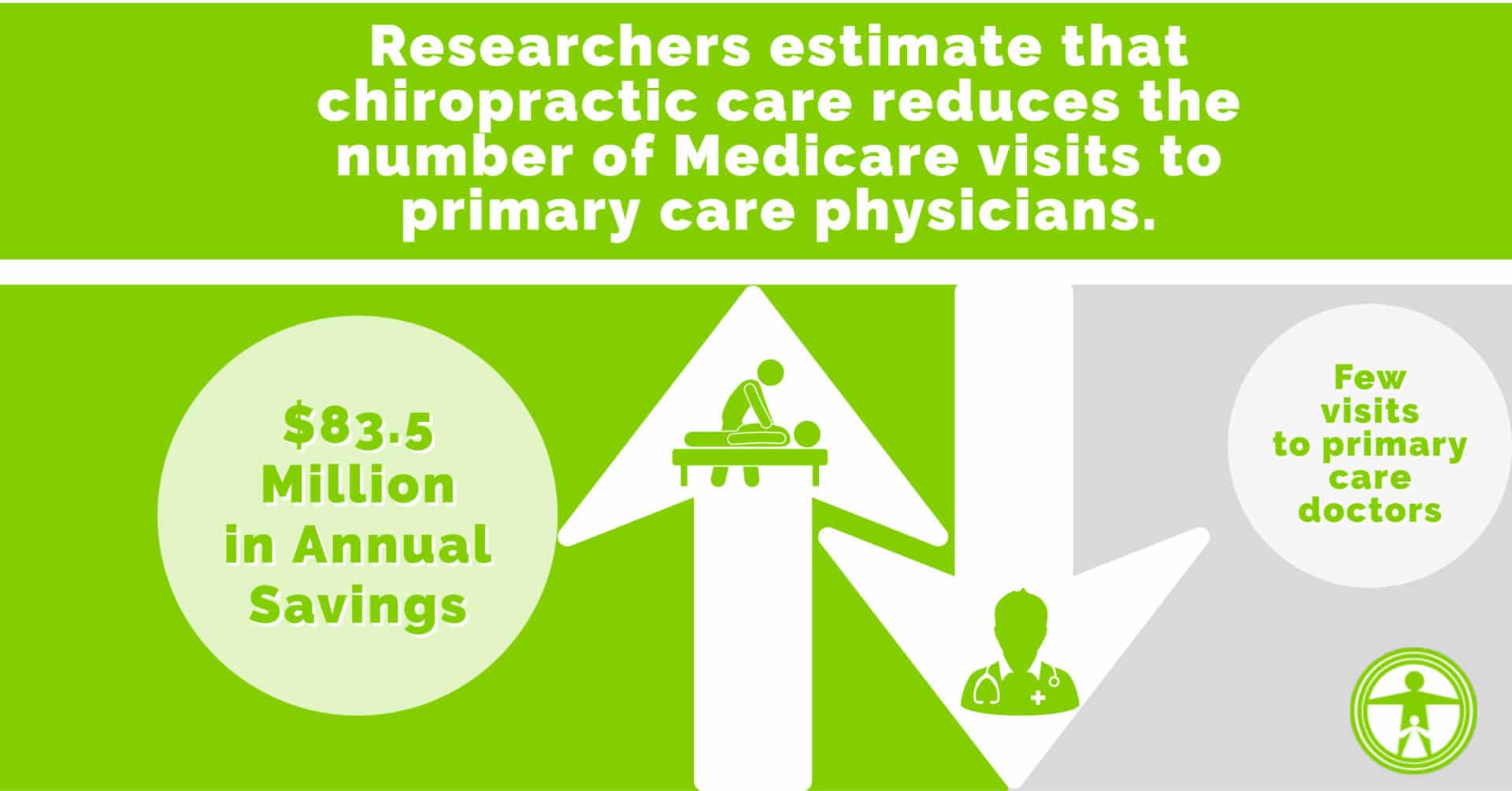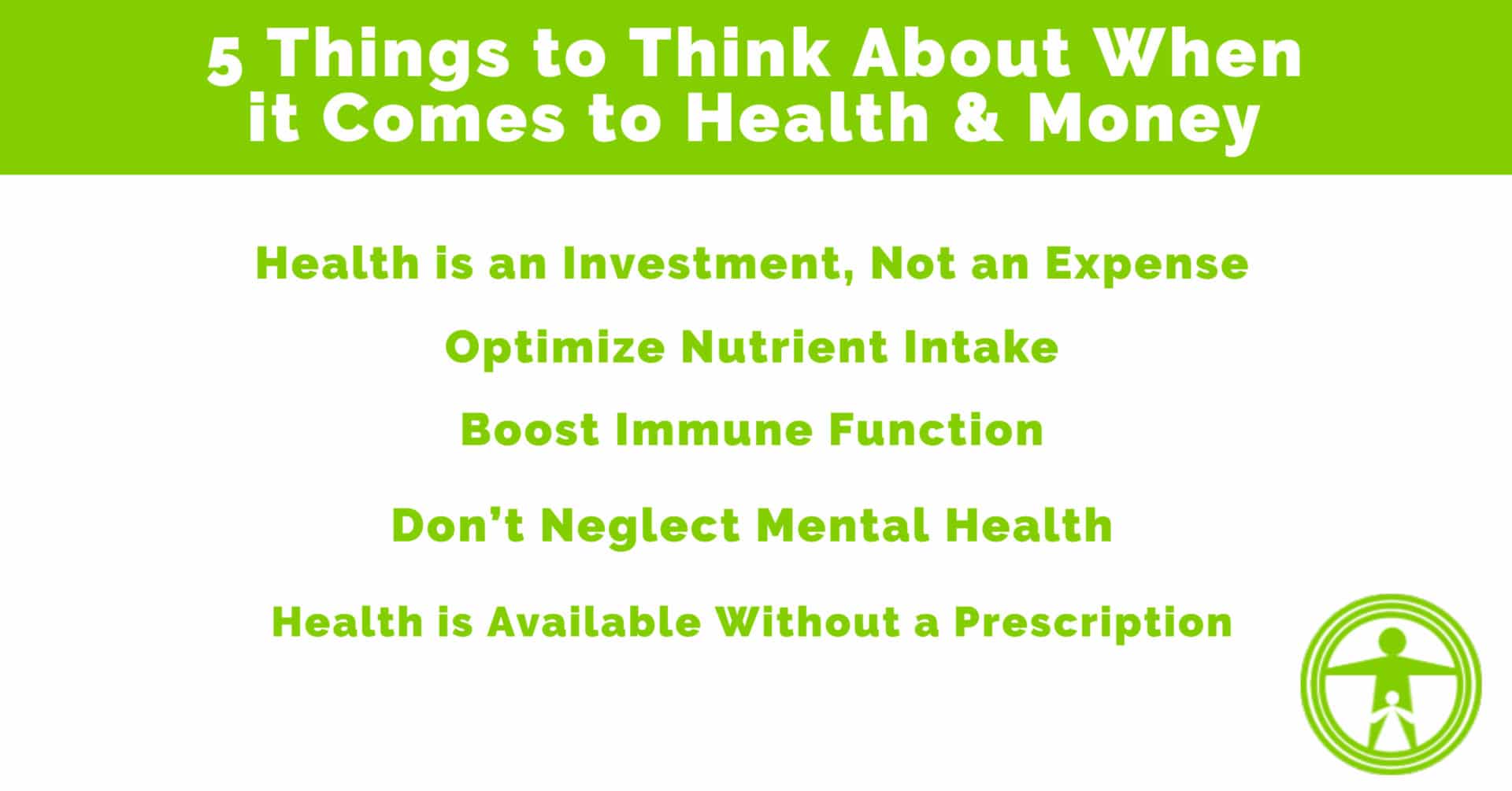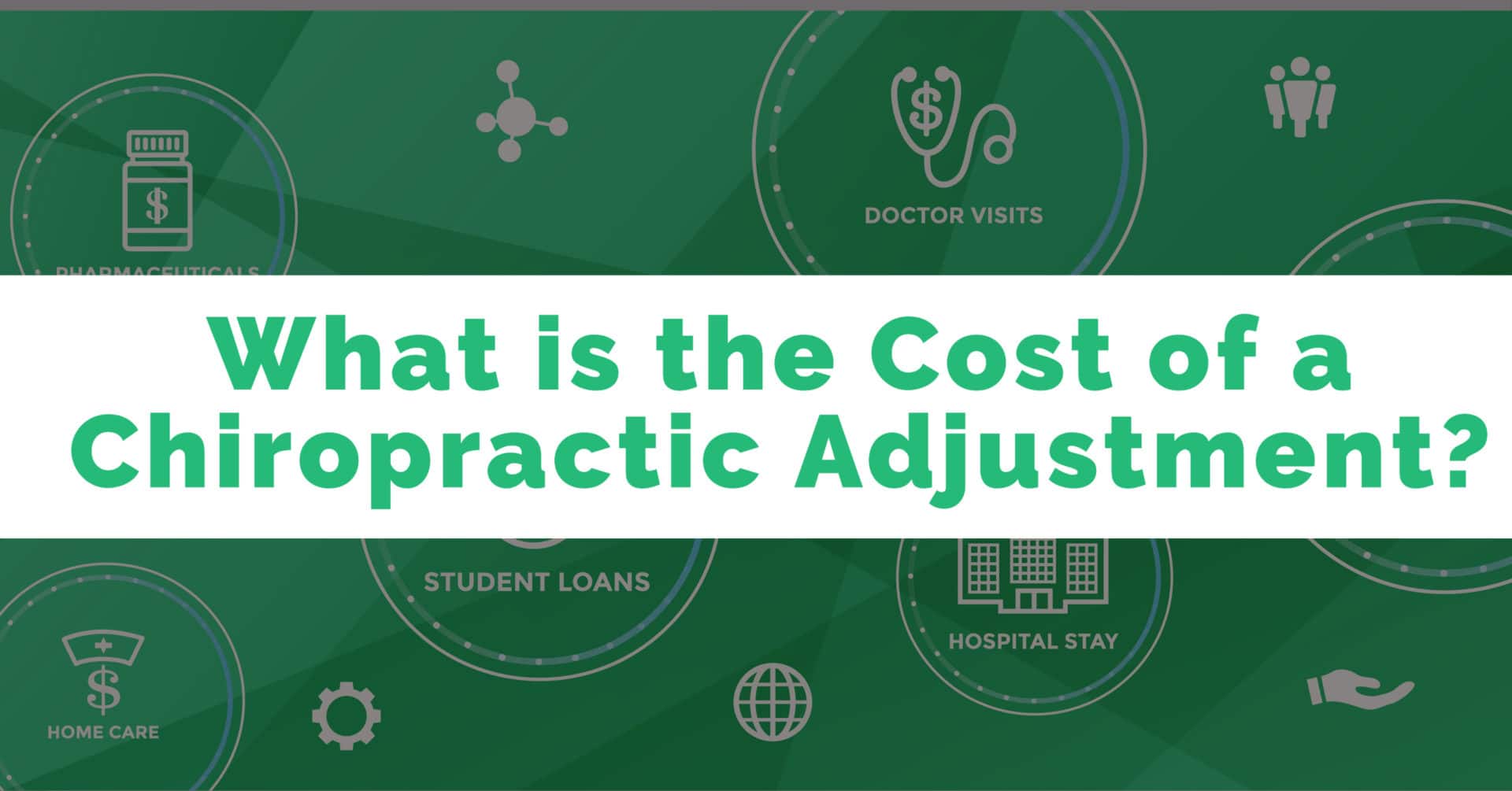What is the Cost of a Chiropractic Adjustment?
The honest answer depends on how much value you place in your health.
Most people have been in a situation where they need to ask the question, “How much does it cost?”
You need to see a doctor or at least know that you need a checkup, maybe you already know you need a chiropractor, but you have no health insurance.
Or maybe you have health insurance, but it doesn't cover chiropractic care or physical therapy treatments.
Maybe your insurance covers chiropractic care, but your deductible is so high that you can't use it.
What should you do?
While the debate about health insurance and the single payer plan continues, you have real needs right now that need to be addressed.
One of the main things that people don’t seem to realize is that Health is priceless, and we shouldn't ever put a value on what it takes to keep our body running in tip top shape.
The body you have is the only one you will ever have, and if you want it to last over time, then you need to take care of it.
Yes, this isn’t to say that money or insurance doesn’t matter because it does, that's a hard fact.
However, most will agree that if you fail to take care of your body by being proactive when issues arise, all the money in the world won’t restore your health or stop you from having chronic pain.
When push comes to shove, you're not going to be wishing for more cars, clothes or things… you'll want more time; and the best way to get more time is to keep your health.
Similar to a car that runs without ever having the oil changed, eventually the engine crosses a point of no return.
In this article I share a few tips about what you can do when you find yourself without health insurance or minimal coverage and need to improve your health.

Does Insurance Cover Chiropractic?
The answer here is both yes and no.
While many major insurance plans DO cover chiropractic care, other plans, including Medicare Part B, don't cover the initial exam, x-rays, evaluation services, and sometimes not even physical therapy exercises necessary to correct the spine.
This doesn't mean you don't need the care. It just means you don't have coverage. And choosing to get the care you need is your choice, not your insurance.
Do insurance companies cover chiropractors? Yes, most do to some extent.
How much does insurance cover for chiropractic care?
Some plans allow for full coverage, including exams, x-rays, 100%!
However, for many plans, this is the case only if you have been involved in some type of accident, such as a car accident or work-related injury.
One of the best things about chiropractic care is that you don't need a referral!
Does Blue Cross cover chiropractic? Yes, but some policies may exclude it.
Does United Healthcare cover chiropractic? Again, Yes and No, it just depends on your specific policy.
This is where the staff at Family Health Chiropractic can help.
Our staff is trained to deal with insurance companies and chances are they know what your plan covers related to accessing services of a chiropractor in Austin.
If you do have insurance but aren’t sure if you are covered or exactly what it will cover, we can help.

What If I Don't Have Health Insurance?
You might think that you can’t afford to see a good chiropractor if you don’t have insurance, but this isn’t true.
It's just a matter where you place value and priorities.
I know people google “Cheap Chiropractor Near Me”, but I don't understand the logic?
The spine is what protects your spinal cord and nervous system. There's nothing “cheap” about that.
So when it comes to your health, especially your spine, cheap isn’t something you should be considering.
If that's the case, you're better off avoiding any “cheap” care to begin with.
Of course you should check ratings and reviews before deciding how to pick a good chiropractor.
There's so much that goes into receiving a chiropractic adjustment rather than just getting “popped” or “cracked”.
Getting adjusted without knowing what's happening to the spine is like a heart surgeon cutting open your chest without screening for what arteries are damaged to begin with.
And if you went to a medical doctor’s office and asked how much it would cost to see the doctor for a cough, what would they say?
It would depend, wouldn’t it? It would depend on whether that cough was caused by a cold or if it was from something more serious like lung disease.
The same is true of a chiropractor’s visit.
Is your spine in a normal healthy position? Do you have abnormal posture but a healthy spine? Do you have any arthritis or deterioration?
Either way, we've made it pretty simple for you to get all those questions answered and more without breaking the bank.

5 Things to Think About When It Comes to Health and Money
1. Your Health is an Investment, Not an Expense
If you don’t read any other tip, this is the one you should hold on to.
Too many people think of their health as an expense and try to figure out how to address it as cheaply as possible.
We do this with foods, supplements and doctors.
This isn’t to say that you should only pay for the most expensive doctor or healthcare, but to ignore issues because “insurance doesn't cover it” or “wait until later” is a big mistake.
Everyone has their priorities, but let’s look at facts.
A great many people in society have no problem spending their money on smartphones, hand bags, cosmetic procedures, clothing, or a car but aren’t the least interested in spending more than a few dollars, if any, on their own health.
People spend $120 on their hair, $100 on brand new shoes, $80 a month on coffee, $45 on a manicure/pedicure but they won't invest in their own health or fitness because insurance doesn't cover it?
Taking care of your health is a real investment in your future.
Imagine if someone told you that if you were willing to spend $100 today on your health, that you would avoid $10,000 worth of health problems in the future, what would you say?
This is exactly what you are doing when you start thinking about your health as an investment, rather than an expense.
Gym memberships, fruits and vegetables, dental cleanings and chiropractic care are all investments.
Fast food, Starbucks, plastic surgery, eyelashes, nails, video games, and even traveling in most cases, are expenses.
2. Optimize Nutrient Intake
The human body requires approximately 40 different micronutrients for normal metabolic function.
Maximizing nutrient density should be the primary goal of our diet because deficiencies of any of these essential nutrients can contribute to the development of chronic disease and even shorten our lifespan.
Nutrient deficiencies are not only a cause of chronic health conditions, but they can also be an effect.
Small intestinal bacterial overgrowth (SIBO), dysbiosis, and gastritis impair nutrient absorption in the gastrointestinal tract and increase nutrient needs.
Chronic inflammation increases the degradation of and need for vitamin B6 and reduces the body’s production of vitamin D from UVB light exposure.
Exposure to environmental toxins such as heavy metals increases the need for essential minerals and nutrients involved in methylation.
These factors make nutrient density even more crucial.
Another place that people like to cut corners in terms of their money, is their food.
This is obvious with the adoption of what is now referred to as the Standard American Diet.
If the United States were to receive a report card rating the quality of the Standard American Diet, it would get a solid “F” for nutrient density.
Despite being high in calories, the Standard American Diet (SAD) is nutrient poor.
Vegetable oils and sugar, which together comprise 36 percent of the SAD diet, are virtually devoid of nutrients.
It should come as no surprise that nutrient deficiency is widespread in the United States; recent statistics indicate that nearly one-third of Americans are at risk for at least one vitamin deficiency or anemia, with hundreds of thousands of people at risk for multiple deficiencies.
3. Boost Immune Function
How can you improve your immune system?
On the whole, your immune system does a remarkable job of defending you against disease-causing microorganisms.
But sometimes it fails: A germ invades successfully and makes you sick. Is it possible to intervene in this process and boost your immune system?
What if you improve your diet?
Take certain vitamins or herbal preparations?
Make other lifestyle changes in the hope of producing a near-perfect immune response?
The best way to boost immune function is to simply improve your lifestyle.
Following general good-health guidelines is the single best step you can take toward naturally keeping your immune system strong and healthy.
Every part of your body, including your immune system, functions better when protected from environmental assaults and bolstered by healthy-living strategies such as these:
- Don't smoke.
- Eat a diet high in fruits and vegetables.
- Exercise regularly.
- Maintain a healthy weight.
- If you drink alcohol, drink only in moderation.
- Get adequate sleep.
- Take steps to avoid infection, such as washing your hands frequently and cooking meats thoroughly.
- Try to minimize stress.
4. Don't Neglect Mental Health
Speaking of minimizing stress…
You likely already know that long-term, unmitigated stress can hurt your health.
Chronic stress, anger, frustration, anxiety, sadness and grief are all emotions that we need to address.
Do these emotions affect your health?
The short answer is yes – positive or negative, your emotions do impact your health.
The good news is that through positive psychology, you can retrain your brain to follow healthier, more beneficial emotional patterns and learn to let go of negative ways of thinking.
How to improve your thoughts to influence positive psychology goes beyond the scope of this article, but know that it's important and can be improved upon.
5. Health is Available Without a Prescription
Health is absolutely available without a prescription.
Just because you don't have insurance and cannot be prescribed a drug, doesn't mean you can't get healthy.
While there is a small portion of the population that truly needs a prescription medication, using these drugs to get healthy never really happens.
In fact, study after study on longevity and health shows the exact opposite.
People who take less prescription medications over time, live happier and healthier lives, compared to those who take prescription medications for every ailment and symptom they experience.
All that said, if we want to prevent and reverse chronic disease, we need a healthcare paradigm that is not simply focused on prescribing another drug for a particular set of symptoms, but willing to spend the time necessary to address complex health issues.



